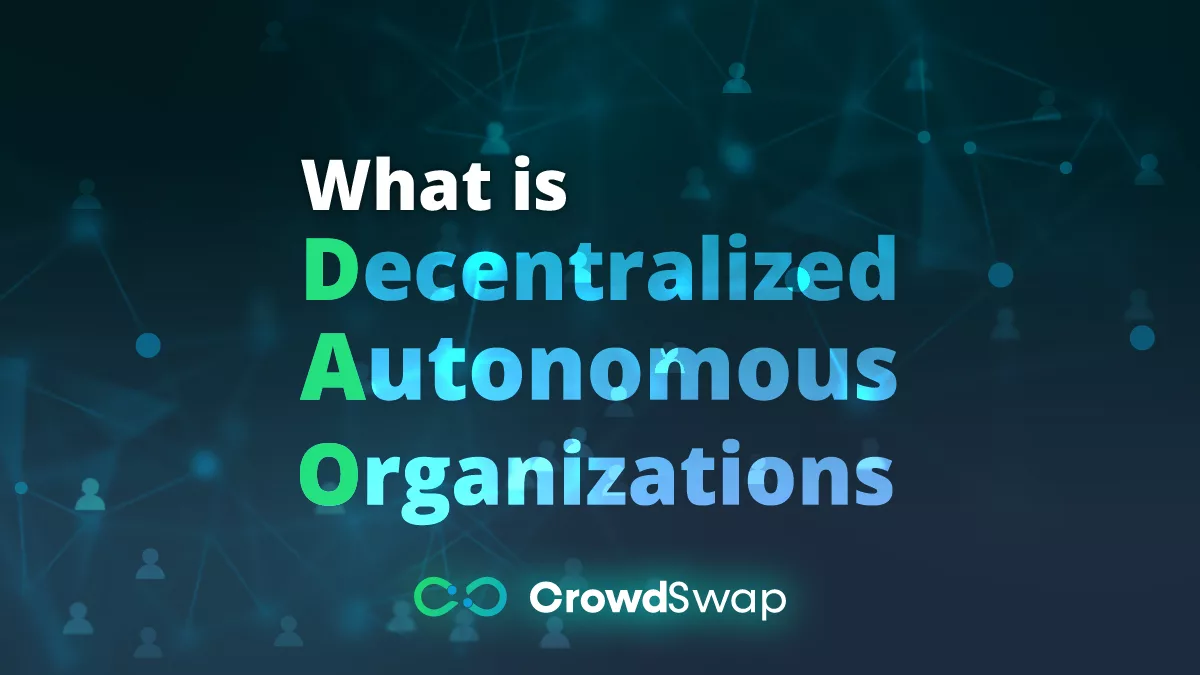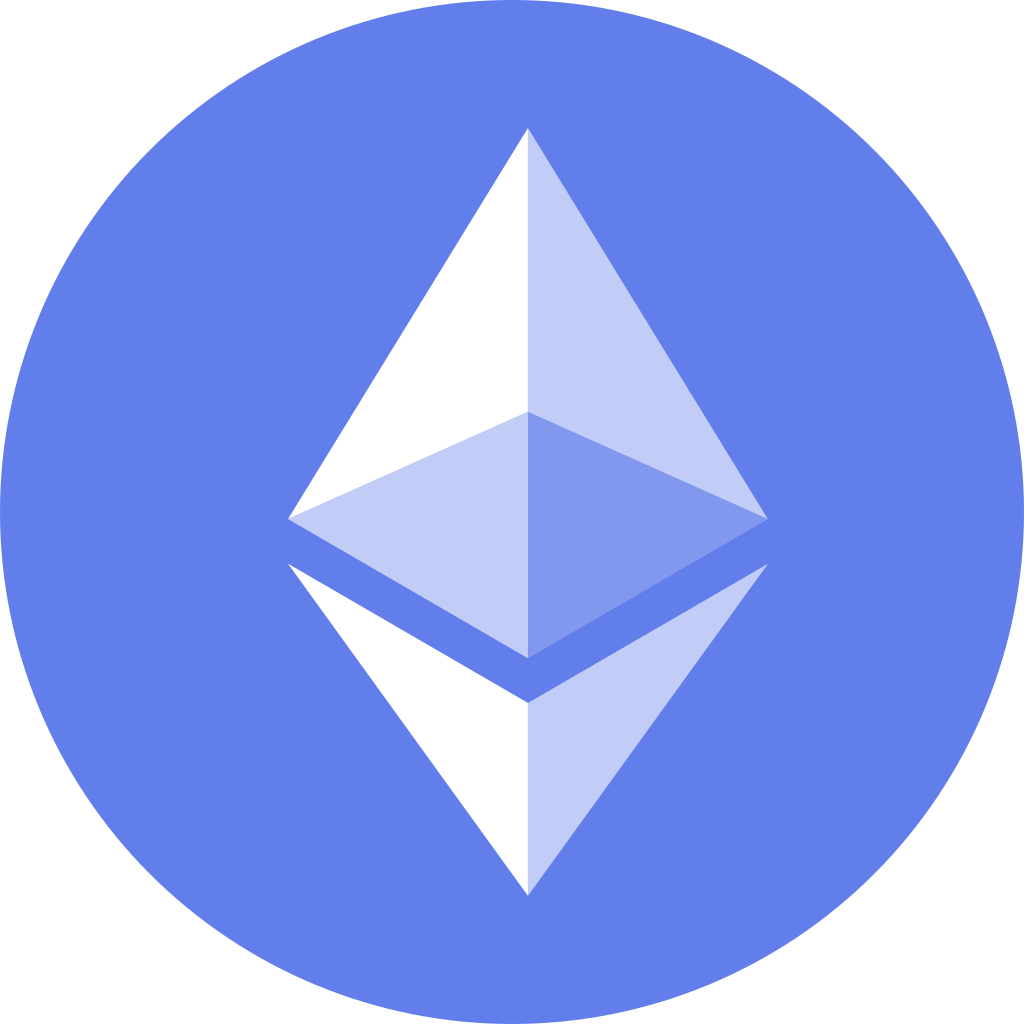In 2022, a global collective of artists united through a digital platform to create groundbreaking artwork. What made this endeavor unique was that none of the artists knew each other personally, yet they collaborated seamlessly, contributing their unique skills to produce a masterpiece. The artwork was sold as an NFT, and the proceeds were automatically distributed among the contributors based on a predefined smart contract. Little did the world know that this collaboration was made possible through the innovative use of a decentralized autonomous organization (DAO), showcasing the potential of collective creativity and decentralized decision-making.
What Are DAOs?
At its core, a Decentralized Autonomous Organization (DAO) is an entity that operates on a blockchain, utilizing smart contracts to automate decision-making processes. Unlike traditional hierarchical organizations, DAOs prioritize decentralization and member participation in governance. DAOs are often described as crypto co-ops, financial flash mobs, or group chats with a bank account. They bring together individuals with a common purpose, such as investing in start-ups, managing stablecoins, or acquiring Non-Fungible Tokens (NFTs).
DAOs are governed by their members, who hold crypto tokens that grant them certain rights within the organization. These tokens represent voting power, allowing members to participate in decision-making processes and allocate resources. Transparency and immutability are key principles of DAOs, as all transactions and operations are recorded on a public blockchain. This ensures accountability and fairness within the organization, as members can easily monitor the actions of their peers.
How Are DAOs Built?
Building a DAO requires a robust technological infrastructure that leverages blockchain and smart contracts. Smart contracts are self-executing agreements that are encoded on a blockchain and automatically execute predefined conditions. They play a critical role in establishing the rules and governance mechanisms of a decentralized autonomous organization. These contracts dictate decision-making processes, fund allocation, and member interactions.
To create a DAO, developers or a group of individuals must create the necessary smart contracts that govern its operations. These contracts are thoroughly tested to ensure their accuracy and security. Once the smart contracts are in place, the DAO needs to raise funding and determine its governance structure. This is often achieved through the sale of tokens, which represent ownership or membership in the DAO. Token holders can participate in decision-making processes and receive rewards generated by the DAO’s activities.
Once the DAO is deployed on the blockchain, members can actively engage in the organization’s operations, vote on proposals, and shape its future. The DAO’s creators no longer possess sole control over its direction, as decision-making power is distributed among the members. This decentralized structure sets DAOs apart from traditional organizations and allows for more inclusive and democratic participation.
How Do DAOs Work?
DAOs operate through a system of token-based voting, where members use their tokens to cast votes on proposals and decisions. Each token represents a certain amount of voting power, with members who hold more tokens having a greater influence over the outcome. This incentivizes members to act in the best interest of the decentralized autonomous organization, as their financial stake is tied to its success.
Proposals within a DAO can cover a wide range of topics, from investment decisions to project development plans. Members can propose ideas, improvements, or changes to the organization, and the community votes on whether to adopt them. The voting process is transparent and recorded on the blockchain, ensuring accountability and preventing fraudulent activities.
DAOs can be highly versatile and cater to various industries and purposes. They enable global collaboration and coordination, transcending geographical and political boundaries. For example, a decentralized autonomous organization can be formed to fund and manage a global public goods project, support open-source software development, or drive renewable energy initiatives. By leveraging blockchain technology and smart contracts, DAOs streamline operations, reduce costs, and increase transparency in these industries.
The Potential of DAOs: Empowering Communities
DAOs have the potential to revolutionize traditional organizational structures and empower communities in unprecedented ways. They offer several advantages over traditional organizations:
1. Transparency and Accountability
One of the key strengths of DAOs is their transparent nature. All transactions and decisions are recorded on the blockchain, creating a verifiable and tamper-proof record of operations. This transparency instills trust among members and ensures that the organization operates fairly and in the best interest of its participants.
2. Democratic Participation
DAOs promote democratic participation by allowing all members to have a say in decision-making processes. Unlike traditional organizations, where power is concentrated in the hands of a few individuals, DAOs distribute decision-making authority among all members. This inclusive approach fosters collaboration, innovation, and a sense of ownership within the community.
3. Efficiency and Agility
DAOs are designed to be agile and efficient, enabling quick decision-making and implementation of ideas. Traditional organizations often face bureaucratic hurdles and lengthy decision-making processes. In contrast, DAOs can swiftly respond to changing circumstances, adapt to market conditions, and iterate on projects in a timely manner.
4. Global Collaboration
DAOs transcend geographical boundaries, allowing individuals from around the world to come together and collaborate on shared goals. By leveraging blockchain technology, DAOs facilitate frictionless global transactions and eliminate intermediaries, enabling direct peer-to-peer interactions.
The Limitations of DAOs: Challenges and Risks
While DAOs hold immense promise, they also face certain limitations and challenges:
1. Complexity and Learning Curve
Understanding and participating in a decentralized autonomous organization can be complex, especially for individuals who are new to blockchain technology and cryptocurrencies. The learning curve associated with DAOs may deter some potential participants and limit widespread adoption.
2. Regulatory Uncertainty
The regulatory landscape surrounding DAOs is still developing, and there is uncertainty regarding how existing regulations will apply to these decentralized entities. Regulators may classify DAO tokens as securities, subjecting them to additional legal requirements and restrictions.
3. Governance and Coordination Issues
Decentralized decision-making can sometimes lead to inefficiencies and coordination challenges. DAOs require active participation from members to ensure effective governance, and disagreements or conflicts within the community can hinder decision-making processes.
4. Security Vulnerabilities
As with any digital platform, DAOs are vulnerable to security breaches and attacks. While blockchain technology provides inherent security measures, DAOs must remain vigilant in implementing robust security protocols to safeguard member assets and prevent unauthorized access.
Real-world Examples of Successful DAOs
To illustrate the potential of DAOs, let’s explore the case of CityDAO, a 6,000-person collective that recently made headlines by purchasing land in Wyoming. CityDAO aims to create a decentralized, autonomous city where decision-making is driven by community members. Through decentralized governance, CityDAO members have the power to shape the development, infrastructure, and policies of the city.
CityDAO’s land acquisition represents a new frontier for DAOs, demonstrating their potential to extend beyond digital realms and impact physical spaces. By leveraging the collective resources and expertise of its members, CityDAO aims to build a sustainable and inclusive community that reflects the values and aspirations of its participants.
While CityDAO and similar initiatives are still in their early stages, they provide a glimpse into the future possibilities of DAOs. As technology continues to advance and communities embrace decentralized governance models, DAOs may become a significant force in shaping the future of organizations and communities. There are different types of DAOs, which are explained in the following section.
Crowdfunding DAOs: MolochDAO stands as a stellar example of a crowdfunding DAO within the Ethereum ecosystem. This collective was formed with the primary objective of pooling Ethereum funds to support various Ethereum-based projects. MolochDAO exemplifies the power of community-driven decision-making, where members collectively decide on the allocation of grants. This approach fosters collaboration and innovation, propelling the growth and development of projects within the Ethereum ecosystem. Through its decentralized structure, MolochDAO showcases how collective efforts can drive progress and enable the realization of innovative ideas that benefit the broader community.
Investment DAOs: The LAO, or Legal Autonomous Organization, represents a pioneering investment DAO that allows its members to pool funds for investment purposes, particularly focusing on early-stage projects, notably in the blockchain space. This decentralized autonomous organization model facilitates the collective pooling of resources, enabling individual investors to collaboratively invest in projects that might otherwise be out of reach for individual contributors. The LAO’s approach demonstrates the democratization of investment opportunities, showcasing how DAOs can leverage the power of collective contributions to drive investments and foster growth within emerging sectors.
Artistic Collaboration DAOs: PleasrDAO has gained significant attention for its unique approach to acquiring digital assets, notably highlighted by its purchase of the iconic “Doge” meme as a non-fungible token (NFT). Comprising a collective of NFT enthusiasts, PleasrDAO exemplifies how DAOs can pool resources and leverage collective decision-making to acquire valuable digital art pieces in a decentralized manner. This innovative approach not only showcases the potential of DAOs in the art world but also demonstrates how decentralized communities can come together to acquire and manage digital assets with shared ownership.
Charitable DAOs: GitcoinDAO operates within the realm of public goods funding, specifically organizing financial support for open-source projects through a mechanism known as quadratic funding. This DAO model highlights the ability of DAOs to facilitate community-driven initiatives that support public goods and foster innovation within the open-source space. By leveraging the collective contributions of community members, GitcoinDAO showcases the potential for decentralized communities to drive meaningful impact in supporting projects that benefit the broader ecosystem of open-source development.
The Evolution of DAOs
Decentralized Autonomous Organizations have evolved significantly since their conceptualization. Initially proposed in 2013, DAOs faced a pivotal moment and significant setback with the infamous DAO hack in 2016, where a vulnerability was exploited, leading to the loss of a significant amount of funds. This event highlighted the need for better security measures and prompted subsequent improvements in decentralized autonomous organization designs.
Following this setback, the resurgence of interest in DAOs has been notable. The development of robust smart contracts, advancements in blockchain technology, and increased community awareness have contributed to their resurgence. DAOs have undergone continuous iterations, refining governance structures, improving security measures, and expanding their scope across various industries.
Several platforms have emerged to facilitate the creation and management of DAOs, providing user-friendly interfaces and tools to lower the barrier to entry. Projects like Aragon, DAOstack, and Colony offer frameworks for creating and operating DAOs, fostering a more user-friendly experience for individuals and organizations interested in embracing decentralized governance.
DAO Governance Models
Liquid Democracy: Liquid democracy is a hybrid model that combines representative and direct democracy. Members can delegate their voting power to representatives or directly vote on proposals. This model allows for flexibility while ensuring wider participation in decision-making processes.
Quadratic Voting: Quadratic voting is a governance model where participants use a quadratic equation to determine the weight of their votes. This model prevents the concentration of power among a few members and allows for fairer decision-making.
Consensus Mechanisms: Various DAOs employ different consensus mechanisms, such as proof of stake (PoS) or proof of authority (PoA), to reach agreement on proposals and decision-making. These mechanisms ensure the security and integrity of the DAO operations while allowing for participation from diverse stakeholders.
Each governance model has its strengths and weaknesses, impacting how decisions are made within DAOs. DAOs often experiment with different models to find the most suitable approach for their specific goals and community dynamics.
DAO Ecosystem and Interoperability
DAOs operate within a vibrant ecosystem that extends beyond their individual structures. They interact with decentralized finance (DeFi) protocols, decentralized applications (dApps), and other blockchain-based platforms, fostering a collaborative environment for innovation and development.
Interoperability between DAOs and various blockchain protocols allows for seamless integration and exchange of assets, information, and functionalities. This interoperability expands the capabilities of DAOs, enabling cross-platform collaborations and enhancing their impact across different blockchain ecosystems.
The Role of Smart Contracts in DAOs
Smart contracts form the backbone of decentralized autonomous organization operations. They are self-executing agreements encoded on a blockchain, ensuring the automated execution of predefined conditions without the need for intermediaries. Smart contracts enable the establishment of rules, decision-making processes, and fund allocation mechanisms within DAOs.
Smart contracts are written in programming languages such as Solidity (used in Ethereum) or similar languages compatible with specific blockchain platforms. Security audits and rigorous testing are crucial to ensure the reliability and integrity of smart contracts, mitigating the risk of vulnerabilities or exploitation.
Emerging Trends and Future Prospects
Integration of Artificial Intelligence (AI): Some forward-thinking DAOs are exploring the integration of AI to enhance decision-making processes. AI algorithms could assist in analyzing proposals, optimizing resource allocation, and providing insights to DAO members, augmenting their decision-making capabilities.
Space Exploration and Scientific Research: Innovative DAO initiatives aim to fund space exploration missions or scientific research projects. These DAOs leverage collective resources to support endeavors that contribute to scientific advancement, space exploration, and the search for new technological frontiers.
The adoption of these trends and innovative use cases signifies the growing potential of DAOs to impact diverse industries and fields beyond their current applications.
DAOs in Social Impact and Governance
DAOs have made significant strides in promoting social impact initiatives, sustainability efforts, and transparent governance models. They empower communities to collectively address social issues, support environmental causes, and establish transparent governance frameworks for local and global communities.
Several DAOs focus on funding public goods, supporting charitable causes, and promoting social welfare initiatives. By harnessing the collective power of communities, these DAOs enable individuals to contribute to meaningful societal changes and address pressing global challenges.
The Legal Landscape and Regulatory Challenges
The legal landscape surrounding DAOs remains complex and evolving. Regulators grapple with defining DAOs within existing legal frameworks, leading to uncertainties regarding their classification and regulatory requirements.
Governments worldwide are working to establish legal frameworks to address DAO-related activities, aiming to ensure consumer protection, prevent fraudulent activities, and define tax implications. Regulatory clarity is essential to foster innovation while maintaining legal compliance within the decentralized autonomous organization.
DAOs and legal experts are collaborating to navigate regulatory challenges, seeking solutions that balance innovation with compliance. In some jurisdictions, efforts to establish regulatory sandboxes or frameworks specific to DAO operations are underway, aiming to provide a conducive environment for DAO development and operation.
DAOs and Education
Educational initiatives play a crucial role in fostering understanding and participation in DAOs. Communities, educational institutions, and online platforms offer resources, workshops, and tutorials to educate individuals about blockchain technology, smart contracts, and the principles of decentralized governance.
These educational efforts aim to bridge the knowledge gap, demystify complex concepts related to DAOs, and empower individuals to participate in decentralized decision-making. User-friendly interfaces and educational materials contribute to lowering the entry barrier for individuals interested in engaging with DAOs.
DAO Security Best Practices
Multi-Signature Wallets: Implementing multi-signature wallets requires multiple private keys to authorize transactions, enhancing security by requiring consensus among multiple parties for fund transfers.
Continuous Security Audits: Regular security audits by reputable firms help identify vulnerabilities and weaknesses in smart contracts and decentralized autonomous organization infrastructures. Audits ensure the reliability and integrity of DAO operations, reducing the risk of potential exploits or attacks.
Community-driven Security Measures: DAOs foster a culture of community-driven security, encouraging members to report suspicious activities, propose security improvements, and actively participate in securing DAO assets and operations.
By prioritizing robust security measures and implementing best practices, DAOs mitigate potential security risks and safeguard member assets and operations.
Interviews with DAO Founders and Community Members
Interviews with founders, developers, and active members of successful DAOs provide valuable insights into their experiences, challenges, successes, and visions for the future of decentralized governance. Their perspectives offer firsthand accounts of navigating the complexities of DAO operations, fostering community engagement, and shaping the evolution of DAOs in various industries.
These interviews highlight the diverse experiences and lessons learned by individuals actively involved in DAOs, contributing to a deeper understanding of the opportunities and challenges within the DAO ecosystem.
How to Start a DAO
If you wonder how to start a decentralized autonomous organization, here’s the process of starting a DAO in several steps:
- Define the Purpose: Clearly articulate the mission and objectives of the DAO. Identify the community or group of individuals that the DAO aims to serve or bring together.
- Create Smart Contracts: Develop smart contracts that govern the DAO’s operations, including voting mechanisms, fund allocation, and membership rights. Ensure these contracts are thoroughly tested for security and accuracy.
- Token Distribution: Issue tokens that represent ownership or membership in the DAO. Determine how tokens will be distributed among initial members and subsequent contributors.
- Fundraising: Raise funds by selling tokens or soliciting contributions from interested parties. Use these funds to support the DAO’s initiatives and activities.
- Community Engagement: Build a vibrant and engaged community around the DAO. Encourage active participation, discussion, and collaboration among members.
- Governance Structure: Establish a governance structure that allows members to propose ideas, vote on proposals, and shape the direction of the decentralized autonomous organization. Ensure transparent and democratic decision-making processes.
- Launch and Iterate: Deploy the DAO on the blockchain and launch its operations. Continuously iterate and improve the DAO based on community feedback and evolving needs.
Starting a DAO requires careful planning, technical expertise, and community engagement. It’s essential to foster a culture of inclusivity, transparency, and accountability within the DAO to ensure its long-term success.
Trade Effortlessly
Ready to dive deeper? Our crypto exchange is simple and user-friendly, making trading a breeze
Conclusion: The Evolution of Web3 and DAOs
Decentralized Autonomous Organizations (DAOs) are at the forefront of the Web3 revolution, offering a new paradigm for organizational structures and governance. DAOs empower individuals, foster transparency, and enable global collaboration. While DAOs face challenges and uncertainties, their potential to revolutionize traditional organizational models is undeniable.
As the crypto community continues to explore the possibilities of DAOs, it is crucial to balance innovation with responsible governance. Regulatory frameworks must evolve to accommodate DAOs, ensuring consumer protection and preventing fraudulent activities. Education and user-friendly interfaces are key to driving widespread adoption and fostering inclusive participation in DAOs.
The future of DAOs holds immense promise. As technology advances and more use cases emerge, DAOs have the potential to reshape industries, empower communities, and unlock new opportunities for collaboration and innovation. Whether DAOs will supplant traditional organizational structures entirely or exist alongside them remains to be seen. However, one thing is clear: DAOs are here to stay, and their impact on the future of organizations and communities is only just beginning.
FAQ
Is DAO a Blockchain?
A Decentralized Autonomous Organization (DAO) utilizes blockchain technology to automate certain voting and transaction processing elements. It leverages the blockchain’s decentralized ledger to facilitate decision-making and execute predefined actions through smart contracts.
Are DAOs Legal?
DAOs do not hold recognition as formal legal entities in most jurisdictions. A significant obstacle hindering the widespread acceptance of DAOs lies in their lack of legal recognition. Due to this absence of formal recognition, DAOs often circumvent the necessity of adhering to traditional state registration requirements for legal entities.
Is DAO a Part of Web3?
Decentralized Autonomous Organizations constitute a fundamental component of the Web3 landscape. As a core element of the Web3 paradigm, DAOs embody the principles of decentralized governance, enabling autonomous decision-making and collective actions without the need for central authority or intermediaries.














